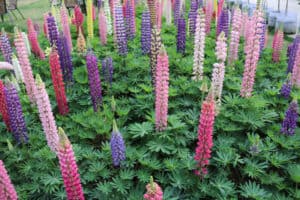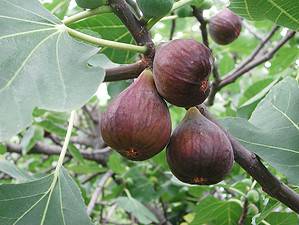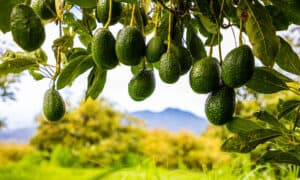North Carolina’s climate can be a bit tricky, with scorching summers and chilly winters. But fear not, as we’ve handpicked the top contenders that thrive in these conditions. Say hello to strong and resilient grasses that will make your lawn the envy of the neighborhood!
If you’re dreaming of a vibrant, green lawn that can handle the heat and charm your neighbors, you’ve come to the right place. In this article, we’ll explore the best grass types to grow in this sunny state, ensuring your lawn stands out like a star.
1. Tall Fescue
Tall fescue stands out as a top option for picking the best grass for your North Carolina lawn. It is a well-liked and dependable choice for homeowners in North Carolina due to its numerous appealing features. This adaptable grass species has several advantages that help create a lawn that is lush, beautiful, and simple to manage.
Tall fescue is well-suited to North Carolina’s climate, which can vary from the mountains to the coast. It thrives in both cool and warm seasons, making it a smart choice for areas with distinct seasonal changes. This grass can handle the hot and humid summers as well as the occasional cold snaps during winters.
North Carolina occasionally faces drought conditions, and tall fescue has proven its ability to withstand such challenges. Its deep root system allows it to access moisture deeper in the soil, making it more drought-resistant than other grass types. During dry spells, tall fescue can maintain its green color and overall health better than many alternatives.
Keeping a lawn healthy often involves dealing with potential threats like diseases and pests. Tall fescue’s natural resistance to common lawn issues, such as brown patches and certain insects, reduces the need for extensive chemical treatments. This aspect not only benefits the environment but also saves homeowners time and money in lawn care.
One of the significant advantages of tall fescue is its low maintenance needs. Compared to some other grasses, it requires less watering and fertilization. Its slower growth rate also means less frequent mowing, which can be a relief for busy homeowners seeking an attractive lawn without investing excessive effort.
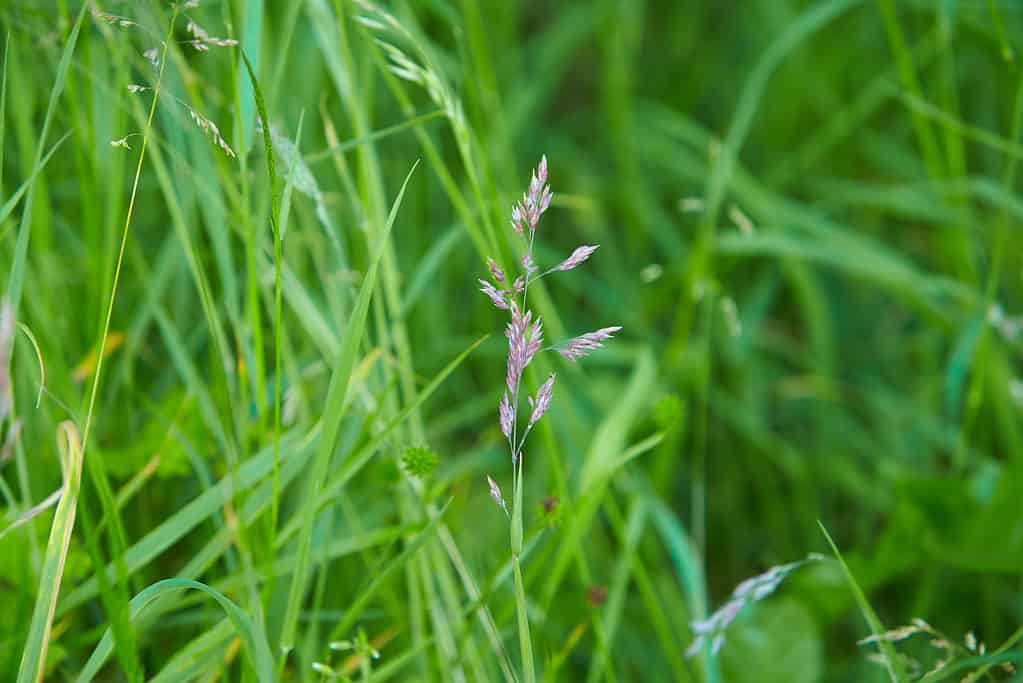
Tall fescue is a particularly attractive grass type in springtime.
©iStock.com/Irina Pislari
2. Bermudagrass
With its ability to withstand various conditions and provide a resilient, vibrant lawn, bermudagrass proves to be an excellent choice for North Carolina landscapes.
Bermudagrass is well-suited to North Carolina’s diverse climate. It thrives in warm weather and can tolerate both full sun and partial shade, making it ideal for various regions within the state. This grass variety is known for its resilience during hot summers, as it continues to grow and maintain its lush appearance under intense heat.
In North Carolina, drought periods are not uncommon, and bermudagrass excels in handling such conditions. Its deep root system allows it to access water from lower soil levels, enabling it to endure dry spells more effectively than many other grass types. During water restrictions or limited rainfall, bermudagrass can maintain its green hue, offering a visually appealing lawn.
Bermudagrass boasts a fast growth rate, allowing it to quickly fill in bare spots and recover from damage caused by foot traffic or lawn activities. This rapid growth also aids in preventing weed invasion, as the dense grass coverage can outcompete unwanted plant growth, keeping the lawn looking well-manicured.
Homeowners seeking a low-maintenance lawn will appreciate bermudagrass. Once established, it requires less watering compared to many other grass varieties. Additionally, its fast growth rate means less frequent mowing, saving both time and effort in lawn maintenance.
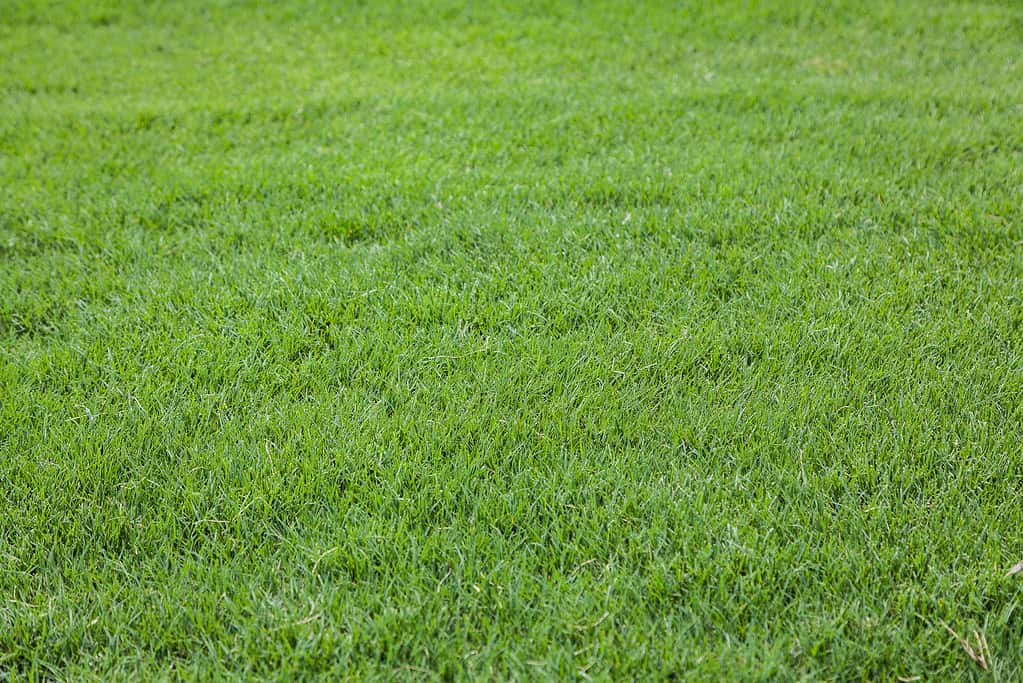
Bermuda grass is excellent for a low-maintenance lawn.
©iStock.com/JPratt
3. Zoysiagrass
Zoysiagrass has exceptional qualities that make it a favored pick among homeowners across the state of North Carolina. With its ability to thrive in diverse climates and provide a lush, resilient lawn, zoysiagrass proves to be an excellent fit for North Carolina landscapes.
Zoysiagrass is well-suited to North Carolina’s varied climate. It thrives in warm and humid conditions, making it an ideal choice for regions with hot summers. Additionally, zoysiagrass can tolerate cooler temperatures during the winter months, ensuring that the lawn remains vibrant throughout the year.
North Carolina experiences periodic droughts, and zoysiagrass excels in handling such challenges. Its deep root system allows it to access water from lower soil layers, making it more drought-resistant than many other grass types. During dry spells, zoysiagrass maintains its green color and overall health, requiring less frequent watering.
For lawns that receive frequent foot traffic or have active children and pets, zoysiagrass proves to be a durable option. Its dense growth pattern allows it to withstand wear and tear, making it an excellent choice for lawns that see regular outdoor activities.
Homeowners seeking a low-maintenance lawn will appreciate zoysiagrass. Once established, it requires less watering and fertilization compared to some other grass varieties. Additionally, its slow growth rate means less frequent mowing, saving time and effort in lawn upkeep.
Zoysiagrass exhibits natural resistance to common lawn pests and diseases in North Carolina. This inherent resilience reduces the need for frequent pesticide applications, promoting a more environmentally friendly approach to lawn care.
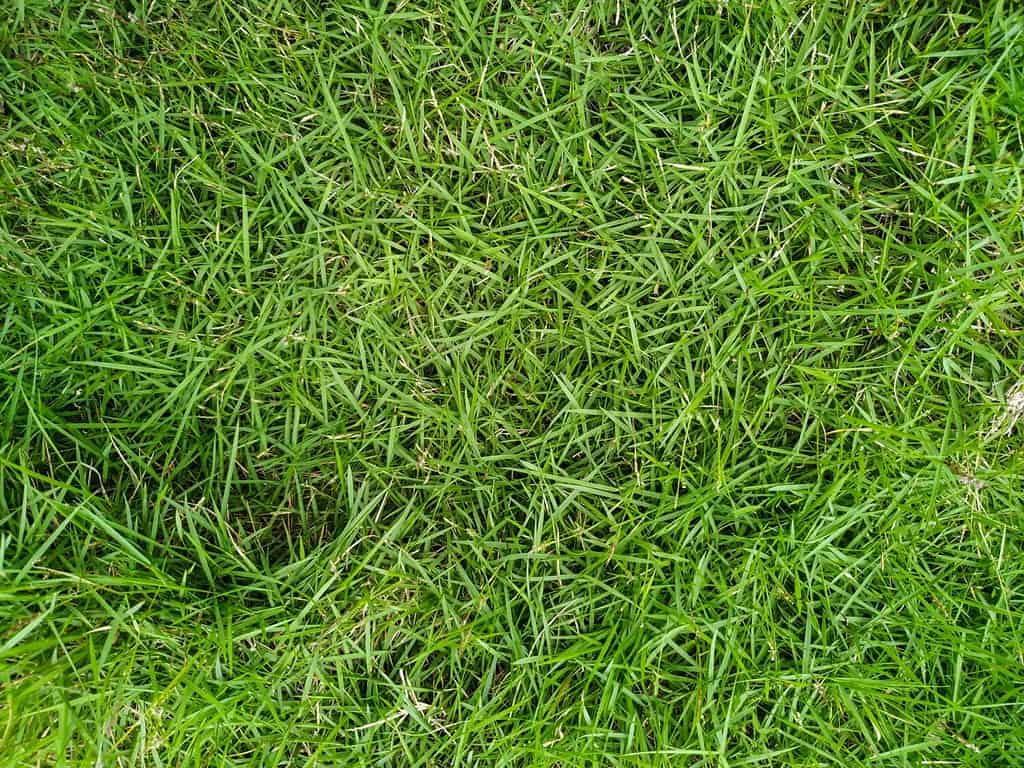
Zoysiagrass is an excellent choice if you battle lawn pests regularly.
©Yanti Lin/Shutterstock.com
4. Centipedegrass
With its adaptability to the local climate and low maintenance requirements, centipedegrass is a top-notch option for North Carolina landscapes.
The warm, humid environment of North Carolina is ideal for centipedegrass growth, giving it a good fit for the local weather patterns. It thrives in climates with moderate winters because it can maintain its brilliant green hue for most of the year. The grass is a great option for lawns in the state because of its resistance to heat and humidity.
One of the key advantages of centipedegrass is its low maintenance requirements. It has a slow growth rate, resulting in less frequent mowing compared to other grass types. This aspect not only saves homeowners time and effort but also reduces the need for frequent lawn care expenses, making Centipedegrass a cost-effective option.
North Carolina experiences periods of drought, and centipedegrass displays a notable ability to endure such conditions. Its deep root system allows it to access moisture from lower soil layers, enabling it to survive dry spells better than many other grass varieties. During water restrictions or limited rainfall, centipedegrass can maintain its green appearance, ensuring an attractive lawn even in challenging times.
In areas with partial shade or filtered sunlight, centipedegrass remains an excellent choice. It can tolerate moderate shade, making it suitable for lawns surrounded by trees or buildings that may cast shadows. This adaptability ensures that centipedegrass can provide a lush and green lawn in various landscape settings.
For sloped or hilly lawns, centipedegrass offers erosion control benefits. Its dense growth and extensive root system help stabilize the soil, preventing erosion and runoff during heavy rains, making it an ideal choice for properties with varying terrains.
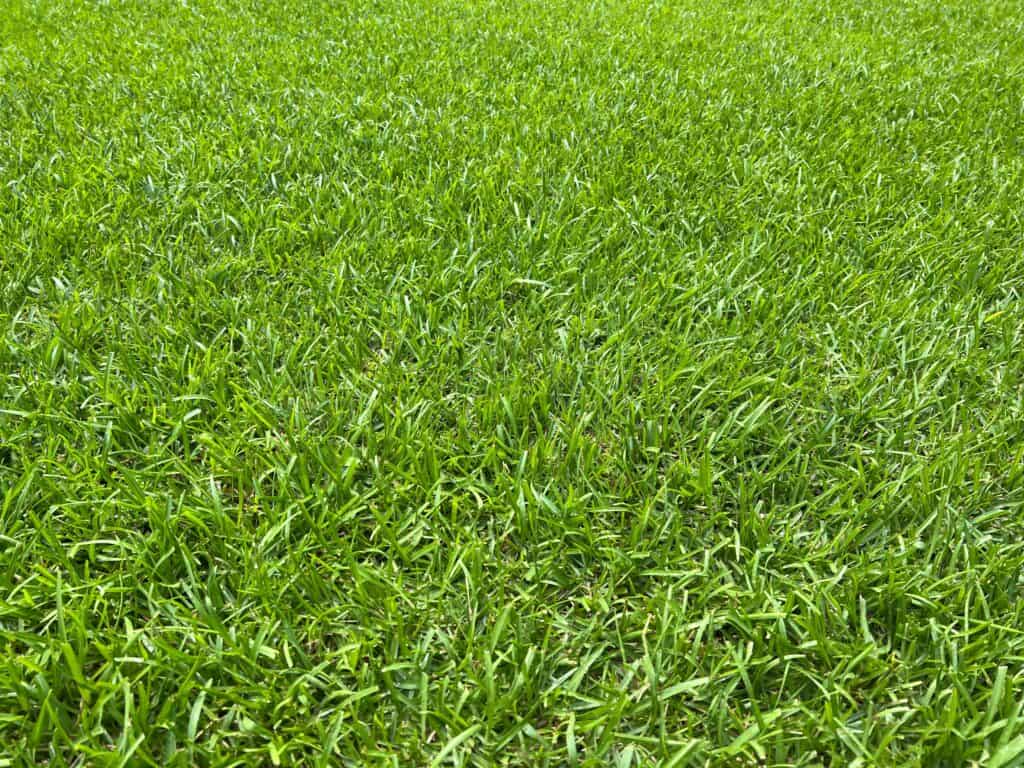
Centipedegrass is a great drought-tolerant option.
©Sherry Barr Photography/Shutterstock.com
5. Kentucky Bluegrass
Among the various grass options for North Carolina lawns, Kentucky bluegrass shines as a top-notch choice. This grass variety offers numerous advantages that make it a favored pick among homeowners in the state. With its adaptability to the climate, lush appearance, and durability, Kentucky bluegrass proves to be an exceptional option for North Carolina landscapes.
Kentucky bluegrass thrives in North Carolina’s climate, which experiences both hot summers and cooler winters. Its ability to endure a wide range of temperatures makes it an ideal choice for lawns throughout the state, providing a vibrant green appearance year-round.
One of the key reasons homeowners prefer Kentucky bluegrass is its attractive appearance. Its fine-textured leaves and deep green color create a visually appealing lawn that enhances the overall look of any property. The lush and dense growth pattern of Kentucky bluegrass adds to its aesthetic charm, making it an excellent choice for those seeking a visually stunning lawn.
Kentucky bluegrass exhibits remarkable resilience to foot traffic and wear. It can recover quickly from damage caused by outdoor activities and remains lush even in high-traffic areas. This feature ensures that the lawn retains its beauty and vitality, making it suitable for active families and social gatherings.
Kentucky bluegrass displays natural resistance to certain lawn diseases prevalent in North Carolina. This characteristic reduces the need for extensive pesticide applications, contributing to a healthier and environmentally friendly lawn care routine.
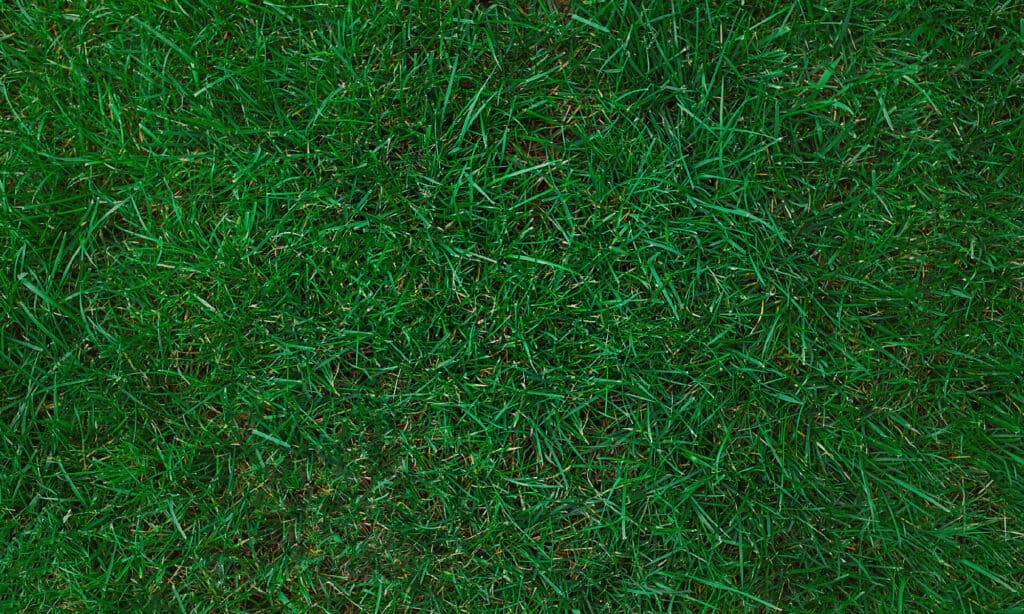
Kentucky bluegrass is known for its rich, deep color.
©iStock.com/KacieBuccieri
6. Perennial Ryegrass
With its adaptability to the local climate, rapid establishment, and attractive appearance, perennial ryegrass proves to be a top-notch selection for North Carolina landscapes.
Perennial ryegrass’ quick establishment is one of its main features. It sprouts up swiftly and quickly turns into beautiful grass. This function is especially helpful for homeowners looking for a quick and efficient solution to enhance the look of their lawns.
The environment of North Carolina, which features both warm summers and chilly winters, is ideal for perennial ryegrass. To maintain year-round greenery in the landscape, it is an excellent grass for overseeding warm-season lawns in the fall and winter since it thrives in milder temperatures.
The fine texture and vivid green hue of perennial ryegrass give it a beautiful appearance. Its thick growth pattern produces a lush, aesthetically pleasing grass surface that improves the property’s curb appeal.
While not as drought-tolerant as some other grass varieties, perennial ryegrass can handle moderate dry periods. Its shallow root system allows it to make the most of available water, making it more water-efficient compared to some warm-season grasses. During dry spells, proper watering practices can help maintain its green and healthy appearance.
Perennial ryegrass’s versatility makes it an ideal choice for overseeding warm-season lawns. When warm-season grasses enter dormancy during the cooler months, overseeding with perennial ryegrass ensures a green lawn year-round, creating an appealing landscape even in the winter.
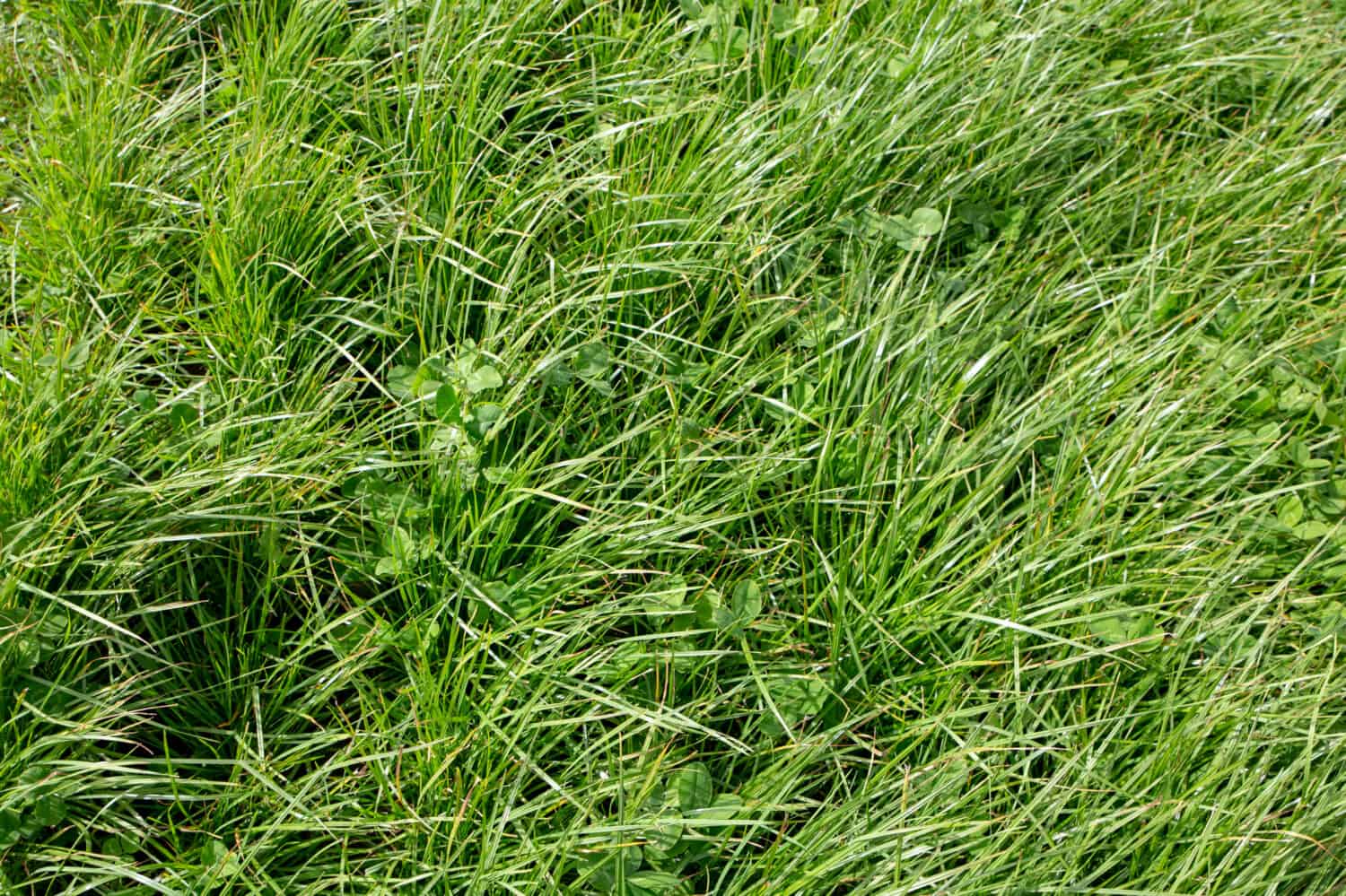
Perennial ryegrass looks great in a yard mixed with clover.
©Sheryl Watson/Shutterstock.com
7. Seashore Paspalum
Seashore paspalum’s unique qualities and adaptability make it a favored option among homeowners in North Carolina. With its ability to withstand coastal conditions, saltwater intrusion, and environmental stress, seashore paspalum proves to be an ideal selection for North Carolina landscapes.
Seashore paspalum excels in its salt tolerance, making it particularly suitable for lawns along the coastal regions of North Carolina. It can withstand saltwater intrusion and thrive in areas with brackish water, making it a resilient choice for properties near the coast.
In regions with periodic drought conditions, seashore paspalum demonstrates impressive drought resistance. Its deep root system allows it to access water from lower soil layers, making it more water-efficient compared to some other grass varieties. During dry spells, seashore paspalum maintains its green color and overall health, requiring less watering.
Seashore paspalum exhibits natural resistance to certain lawn diseases and pests common in North Carolina. This inherent resilience reduces the need for frequent pesticide applications, contributing to a healthier and environmentally friendly lawn care routine.
One of the key advantages of seashore paspalum is its attractive appearance. It boasts a deep green color and fine-textured blades, creating a visually appealing and luxurious lawn surface. Its soft texture underfoot adds to the overall comfort and enjoyment of the outdoor space.
Seashore paspalum is known for its adaptability to various environmental conditions. Whether in sunny or partially shaded areas, it can thrive and maintain its lush appearance. This versatility ensures that seashore paspalum can provide an aesthetically pleasing lawn in different landscape settings.
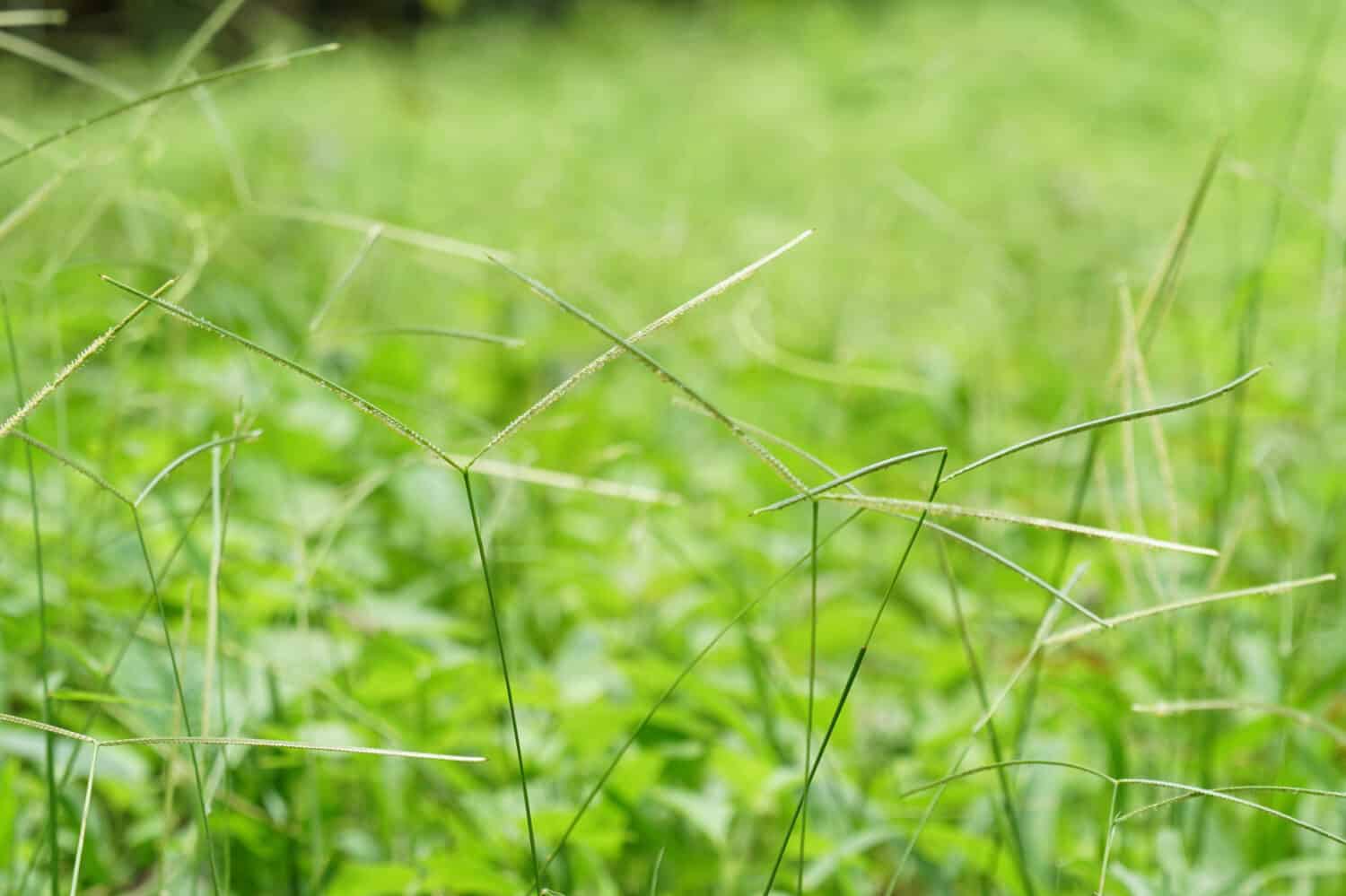
This type of grass is popular throughout the American South.
©Doikanoy/Shutterstock.com
8. Carpet Grass
Carpet grass can handle challenging conditions, has low maintenance requirements, and has an attractive appearance. This type of grass stands out as a top-notch selection for North Carolina landscapes.
Carpet grass excels in areas with poor drainage or soils prone to occasional flooding. It can tolerate wet conditions, making it an ideal choice for lawns in regions with heavy rainfall or proximity to bodies of water.
One of the significant advantages of carpet grass is its low maintenance needs. It has a slow growth rate, resulting in less frequent mowing compared to other grass types. Additionally, it requires minimal fertilizer and water, making it a budget-friendly option for homeowners.
Carpet grass displays good shade tolerance, making it suitable for lawns with partial shade or filtered sunlight. It can maintain its vibrant green color and growth in areas with limited direct sunlight, ensuring a lush and attractive lawn in various landscape settings.
While not as drought-tolerant as some other grass varieties, carpet grass can withstand moderate dry spells. Its deep root system helps it access water from lower soil layers, enabling it to endure periods of limited rainfall or water restrictions.
Carpet grass exhibits natural resilience to common lawn pests and diseases in North Carolina. This characteristic reduces the need for frequent pesticide applications, promoting a more environmentally friendly approach to lawn care.
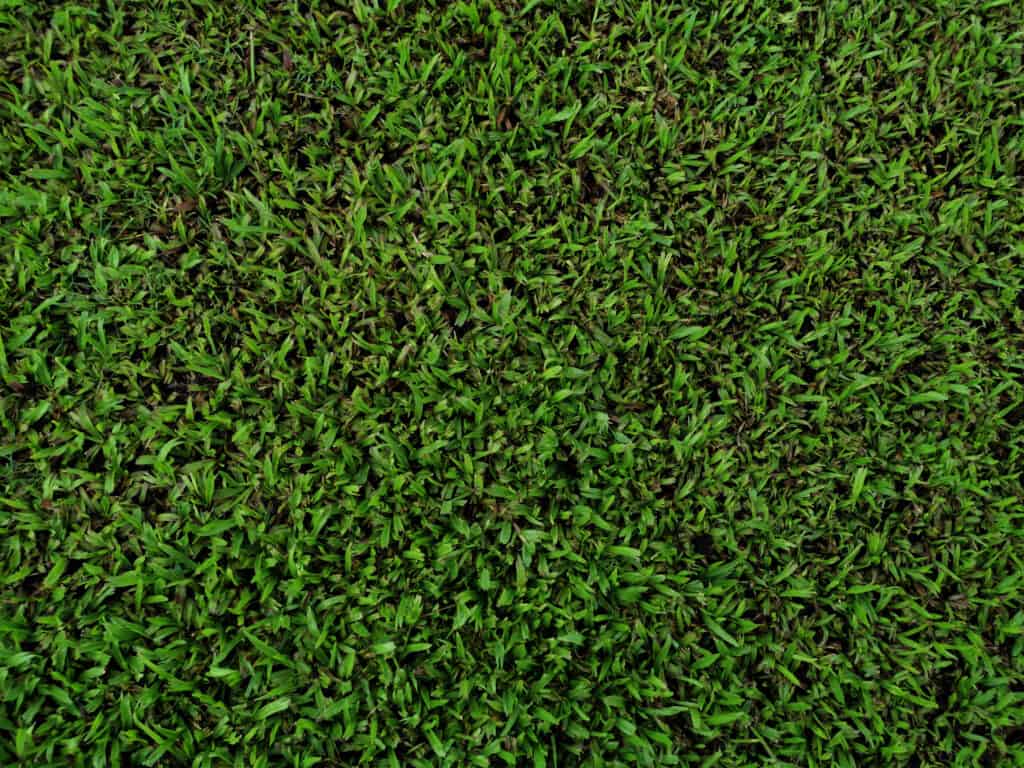
Carpet grass is ideal for lawns with lots of shade.
©Leestudio/Shutterstock.com
9. Bahia Grass
With its ability to thrive in challenging conditions, low maintenance requirements, and resilience, Bahia grass proves to be an excellent selection for North Carolina landscapes.
Bahia grass excels in its drought tolerance, making it well-suited for North Carolina’s climate, which experiences periodic dry spells. Its deep root system allows it to access water from lower soil layers, making it more water-efficient compared to some other grass varieties. During water restrictions or limited rainfall, Bahia grass remains green and healthy, ensuring an attractive lawn even in challenging times.
Bahia grass displays excellent adaptability to various soil types, including sandy and infertile soils. It can thrive in areas with poor soil quality, making it an ideal choice for regions with less favorable soil conditions.
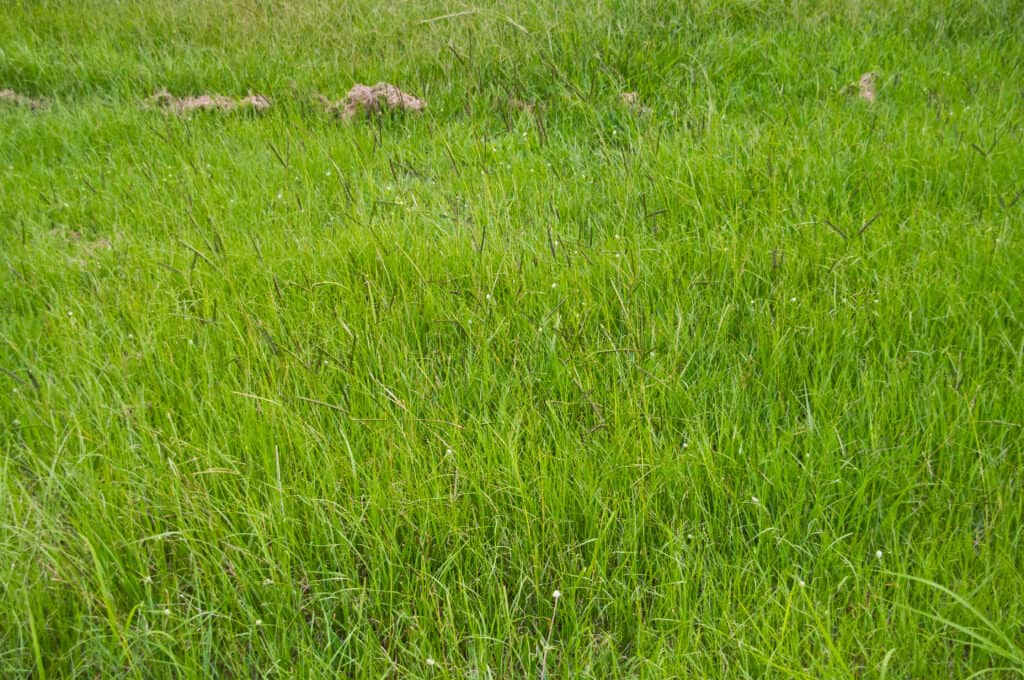
Bahia grass is a great, adaptable choice for North Carolina lawns.
©John Robert McPherson, CC BY-SA 4.0, via Wikimedia Commons – License
Summary of Grass Types That Thrive in North Carolina Yards
| # | Type |
|---|---|
| 1 | Tall Fescue |
| 2 | Bermudagrass |
| 3 | Zoysiagrass |
| 4 | Centipedegrass |
| 5 | Kentucky Bluegrass |
| 6 | Perennial Ryegrass |
| 7 | Seashore Paspalum |
| 8 | Carpet Grass |
| 9 | Bahia Grass |
The photo featured at the top of this post is © iStock.com/Irina Pislari
Thank you for reading! Have some feedback for us? Contact the AZ Animals editorial team.



